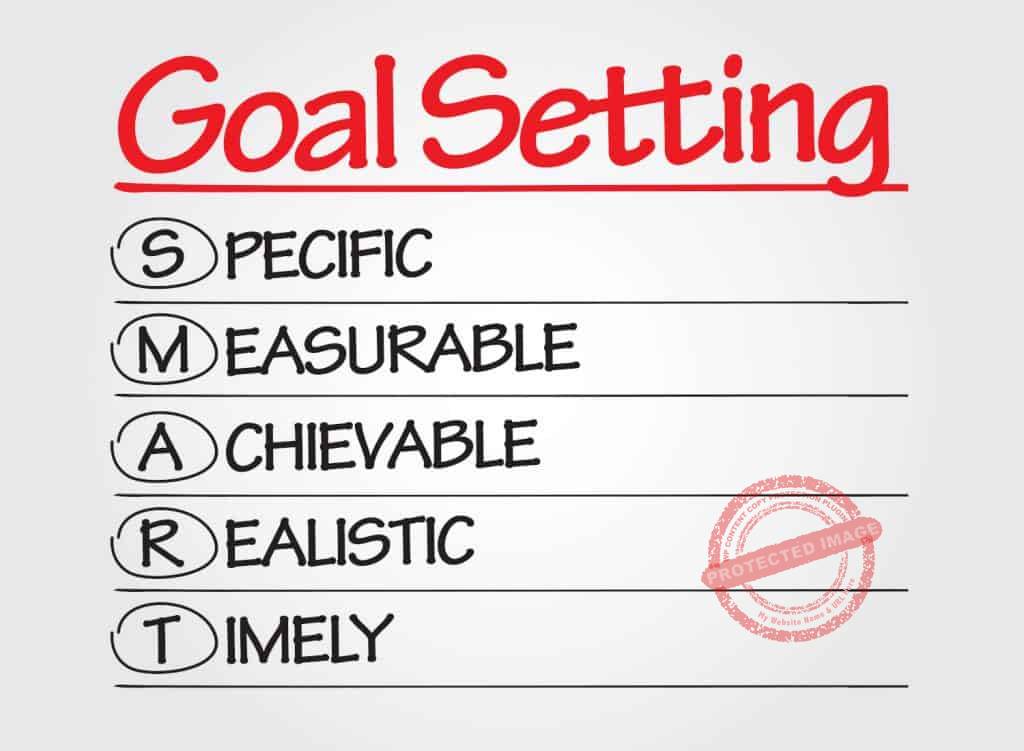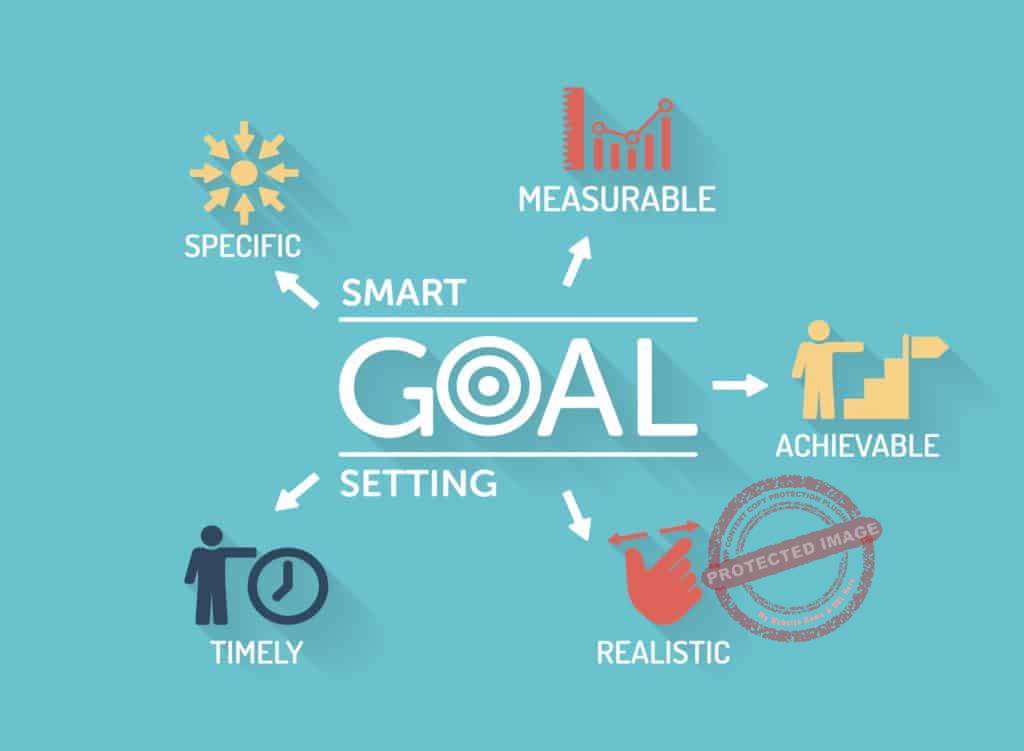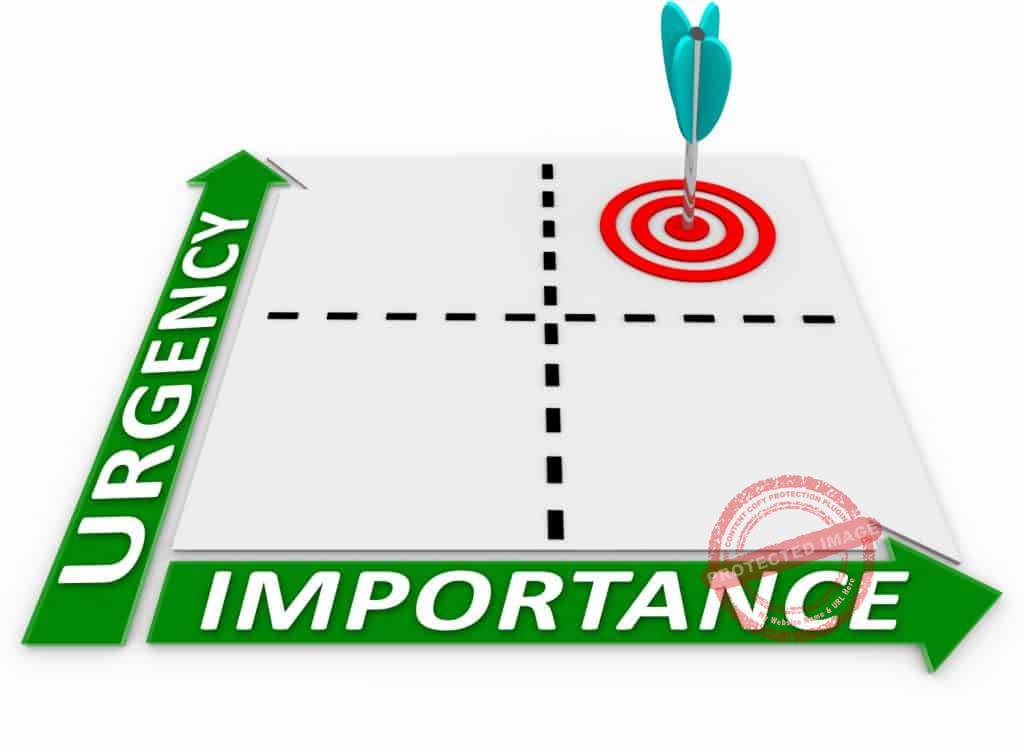Do you have set goals that you want to achieve in your small business? Setting and achieving goals is an important part of any business which is why you need to have the right guidelines on how to go about it. Fortunately, for you, we’ve created this article with you in mind. Read on to Find out more.
When you put up a small business, you have certain goals in mind.
You have specific results that you plan for, commit to, and work towards usually within a specific time frame.
Learning how to set and achieve goals for your small business helps you start your business on the right foot.
It sets you off in the right direction to make your business successful.
So, what is it that you need to know about how to set and achieve goals in your small business?
How to Set and Achieve Goals for Your Small Business

Before diving into how to set and achieve goals for your small business, let’s consider the importance of setting goals in business.
Importance of Goal Setting

Firstly, it is essential that you know exactly what you want to achieve with your business.
When you fail to clearly define and lay out your goals, you tend to drift towards uncertain directions.
Also, you waste time and energy.
Hence, goal setting is important for the following reasons.
- It gives you direction
When you don’t set goals, you are shooting arrows into the air.
You aim at random.
You have no target.
This approach doesn’t really get you anywhere.
It is pointless.
More so, it is a waste of time, effort, energy and resources.
Setting goals gives you purpose.
It gives you a sense of direction and a specific target to aim for.
Even more, it increases your chances of success.
- It allows you to evaluate your progress
Writing business goals gives you a benchmark with which to assess your progress.
Also, it gives you a fixed endpoint.
With this, you can evaluate whether or not you are making the progress that you have in mind.
In other words, goals allow you to determine your progress and know how much further you need to go.

- It allows you to maintain focus
Setting goals makes you buckle up and focus.
It gives you mental boundaries.
When you have a goal in mind, you steer clear of distractions.
You try to focus all your resources to achieve your goal and avoid anything that will prevent you from achieving it.
If you want your business to succeed, establish clear goals.
Having a list of business goals helps you to lock in and give your business your 100%.
- It makes you feel accountable
Don’t put up a business and expect to simply wing it.
Doing things on a whim sets you up for failure.
However, setting goals makes you feel accountable.
You put your heart and mind into achieving company goals and objectives.
Also, you hold yourself responsible for finishing tasks.

- It motivates you
You set yourself up to succeed when you understand the importance of goal setting.
Goals inspire you and motivate you.
They also give you something to be excited about.
Things are never always easy when you put up a business.
You will make mistakes and fail sometimes.
During hard times, look at your list of business goals.
This is because they can serve as an inspiration to get you going no matter what.
Think about the emotional rewards of achieving company goals and objectives.
The pleasant anticipation of accomplishing your goals will stop you from throwing in the towel.
- It stops you from procrastinating
When you set goals, they stick to your mind.
You feel guilty and uncomfortable when you don’t do certain tasks.
Goals are constant reminders.
They stop you from putting things off and from being lazy.
Similarly, they help you to keep going and get big chunks of work done so that you get closer to achieving your goals.

- It sustains your momentum
You can become addicted to seeing progress.
A snowball grows bigger as it rolls downhill.
The same principle works for the success or progress you make when you have goals.
Every small task that you accomplish sustains your momentum.
It gets you on the roll and keeps you going.
- It promotes self-mastery
Goals build character.
As you pursue them, you build self-esteem and self-confidence.
In other words, you promote self-efficacy.
Setting goals and working your way towards achieving them, helps you become a better and stronger person.
Types of Business Goals

You can’t undermine the importance of goal setting.
Goals help you to direct your time, energy, and resources on what is really important to you.
Additionally, goals have such a deep impact on yourself and on your business.
Hence, it is essential that you are able to set the right goals to work with.
Setting the right goals ensures that you give your whole heart and mind to working for them.
When you accomplish them, you get meaningful results that make you feel as amazing as you may have anticipated right from the beginning.
Consider the different types of business goals when you think about how to set goals you can achieve.
Personal And Professional Business Goals

These types of goals seek to answer the question; why is putting up a business important to you?
Try to recall how you felt when you launched your business or went into freelancing.
You may have wanted to spend more quality time with your family.
You may have wanted to enjoy more flexibility, creativity, and independence.
Business goals often center on earning more or developing a bigger client base.
These are valid and important goals.
However, do not lose sight of your personal motivations when you go into goal-setting for your business.
When you set your goals, consider personal aspects when drawing up your business goals.
- How much work (or the maximum number of hours) do you want to put in every week?
- Do you have specific time slots or days that you want to allocate for your family?
- What should you do so that you won’t miss your children’s school performances or sports days?
- Do you want to fit in time for your meditation or yoga classes?
- Do you want to have time off from your business to acquire new skills or qualifications?
Keep your most important priorities in mind and make sure that you input or reflect them in your business goals.
Short-Term And Long-Term Goals

It is important to have big dreams or long-term vision for the future.
This big picture inspires you and gives you something meaningful, compelling, and exciting to work for.
It is also just as important to be able to have small doable short-term goals.
They give direction to your immediate efforts.
Furthermore, they enable you to meet urgent deadlines and make incremental progress towards the bigger picture.
The following are examples of long-term or lifetime goals:
- Reach a specific level of income
- Buy your dream house
- Retire early
- Travel the world
Break your vision into several long-term goals and further break them down into goals that are achievable within 10, 5, or 3 years.
To achieve results and keep your focus, establish short-term goals with 3-month deadlines.
Break these goals down into even smaller ones so you can evaluate your progress on a monthly and weekly basis.
Process And Outcome Goals

Outcome goals refer to the results that you aim for.
Furthermore, they reflect your long-term vision.
On the other hand, process goals refer to the actions that you take to achieve these results.
They help you work to meet your short-term deadlines.
There are factors that may affect whether or not you will be able to achieve your outcome goals.
You usually don’t have control over some of these factors.
Process goals are specific actions that are within your control.
They help increase your chances of achieving your outcome goals.
These are examples of process goals:
- Send out so many business proposals each week.
- Follow up prospects every day.
- Post on your social media accounts regularly.
- Block specific times in your calendar to spend with friends and family
- Register to take an online course
Set goals that are a mix of outcome and process goals.
Qualitative And Quantitative Goals

Quantitative goals refer to tangible goals.
They are targets that are measurable, specific, and achievable.
They usually indicate from a monetary or financial perspective if your business is on track.
Here are some examples:
- Working no more than 35 hours on the business this week.
- Earning no less than $16,000 in the next five months.
- Getting 4 new clients at month’s end.
Qualitative goals enable you to achieve a healthy work-life balance.
Here are some examples:
- Becoming more self-confident.
- Enjoying what I am doing more.
- Experiencing less worry and stress.
- Improving public speaking skills.
- Being better at writing.
If possible, define what “more,” “better,” or “less” means to you.
For instance, rate your self-confidence today.
If you rate it at 5 out of 10, you can probably set a goal of raising it to 7 out of 10 within the next three months.
Set a combination of qualitative and quantitative goals.
The latter ensures that you are meeting your financial targets.
The former reflects the finer and more refined aspects of what you want to accomplish with your business.
Realistic and Ambitious Goals

Being ambitious is great.
However, it can make you feel overwhelmed.
Thus, it is important to translate big goals into manageable milestones.
Some financial experts who provide goal setting help will ask you to establish how much income you want your business to generate for the year.
Then, they will advise you to increase this goal twofold or even threefold.
Setting ambitious goals will drive you to work harder.
But it can also result in intimidating you and making you give up.
Balance your stretch (ambitious or dream) goals with smaller milestones and more realistic targets.
By doing this, you get to celebrate little triumphs along the way.
You can have big dreams.
However, set smaller goals to build your confidence, inspire you, and keep you going.
How To Set And Achieve Goals For Your Small Business

People who don’t have specific goal-setting training and knowledge in setting business goals often establish vague goals that have no boundaries.
Before you sit down and prepare yourself for writing business goals, conduct research on how to set goals.
Find out how successful business people go about the process of setting realistic goals for their companies.
Reading up in their success stories will give you the goal-setting help and inspiration you need.
Here are some tips to help you understand how to set goals you can achieve.
Set Goals That Are Important To You

The very first among the number of essential steps to setting business goals is to determine exactly what it is that you want to accomplish.
This first step ensures that you set goals that are important, meaningful, and gratifying to you.
When you have clear and compelling goals, you are able to mobilize your resources towards their achievement.
The goals serve as powerful mental cues to motivate you and to trigger the right behavior.
Break Your Goals Down

Business goals are usually for the long term.
Many are quite challenging and call for a lot of work and dedication.
Some can seem absolutely overwhelming.
Hence, it is important to break goals down into small and actionable ones.
Learn how to write a goal by including the “baby” action steps.
Break big goals so you can make small but gratifying accomplishments every single day.
Monitor Your Progress

One of the helpful steps to setting business goals is to provide a means to track your progress.
Set aside time every week and every month to check how much progress you have accomplished.
Regular goal check-ins allow you not only to determine how much head-start you’ve done.
They also help you think about the areas where you need to focus more.
Commit To Your Goals

Setting your goals and objectives requires a number of things.
Set clearly-defined goals that are important to you.
Know the specific steps you need to take to accomplish these goals.
Track your progress.
Setting realistic goals also requires commitment.
The previous steps are not going to see you through to the end if you lack commitment.
You will encounter a lot of problems along the way.
If you have a strong sense of purpose and the commitment to see things through, you stand a great chance of succeeding.
Share Your Goals

Sharing your goals with another person or your team is an effective motivational technique.
You make yourself accountable.
In addition to that, you drive yourself to work harder because you don’t want to fail or disappoint the person(s) you’ve shared your vision with.
Sharing your goals also helps you establish roles and determine assignments.
It helps you plan out the extent of involvement you expect from your team.
Set Deadlines

Deadlines reflect your commitment to achieving your goals.
It provides context to your targets.
When setting deadlines, it is best to make them reasonable and realistic.
Build A Strong Support System

A support system includes friends, family, colleagues, mentors, and subordinates.
It includes everyone who knows what your vision is, and supports you in your efforts to achieve it.
Having a reliable system of support gives you the following advantages:
- You become more determined to work hard for your goals, inspired by the knowledge that you have a strong solid lineup of people behind you.
- Also, you benefit from the wealth of skills, knowledge, and experience of your team.
- It helps you learn from the different perspectives available.
- You encourage each other to plod on, cheering each other up when times are hard.
- Additionally, you’ll feel accountable to your team.
- Lastly, you’ll have people to celebrate with when you accomplish little goals.
Don’t expect things to happen exactly as you anticipate them to.
Setting your goals and objectives entails flexibility.
While it is essential to have clear action plans for achieving your goals, you also need to be flexible.
You can’t afford to be rigid or narrow-minded.
Additionally, you need to be open to modifying your plans and adjusting to changes.
When you are quick to think on your feet and to change directions when necessary, you are better able to take your business to higher levels.
Remain Confident

There will always be challenges and difficult situations.
Stay positive so that you can accomplish what you have set out to do.
Staying positive, cheerful, and confident will rub off on the people around you.
It will also carry you through the tough times that will test your focus and determination.
Be Realistic And Accept Imperfections

Do not be obsessed about doing everything correctly.
Do not allow your fear of failure to hold you back.
Also, do not allow your fear of making mistakes keep you from trying to make progress.
Do not wait for conditions to be perfect before proceeding to work for your goals.
Taking steps to move you closer to your goals trumps making mistakes.
In fact, you should look at mistakes as opportunities to learn, to generate better ideas, and to try new approaches that will help you go forward.
Celebrate Every Small “Win”

Take the time to celebrate the little successes that come your way.
Recognize the hard work that went into what you’ve accomplished.
Be inspired by each small success and keep pushing to get to the next level.
Overall, being mindful of the little triumphs enables you to get back to the grind with renewed enthusiasm.
Conclusion On How to Set and Achieve Goals for Your Small Business

If you want to start or own a successful business, you have to learn how to set goals.
Also, you give your business a strong foundation for success when you set the right goals to aim for.
Even more, you give it direction, focus and a clear path to success.
When you know how to identify and write clear, well-defined, and compelling goals, you give your business a decided advantage.
That’s all the guidelines you need on how to set and achieve goals for your small business.
Apply them today and start celebrating your small and big wins.
Lastly, kindly check out other resources linked to this post as they are also very informative and helpful.
Click on Buy Now For a PDF Version of This Blog Post
 |










